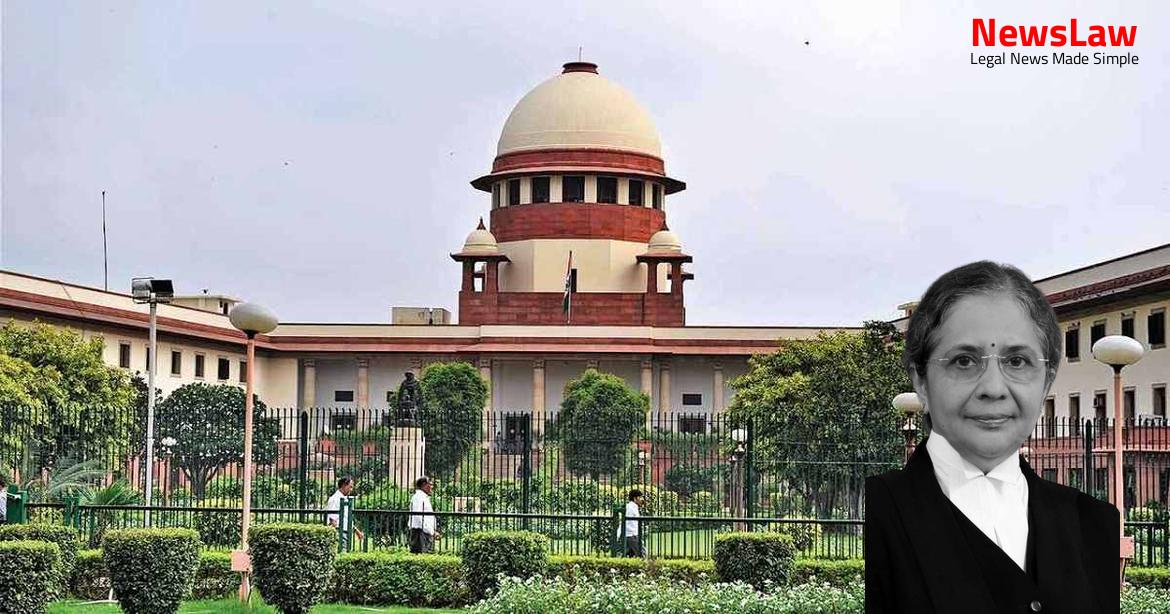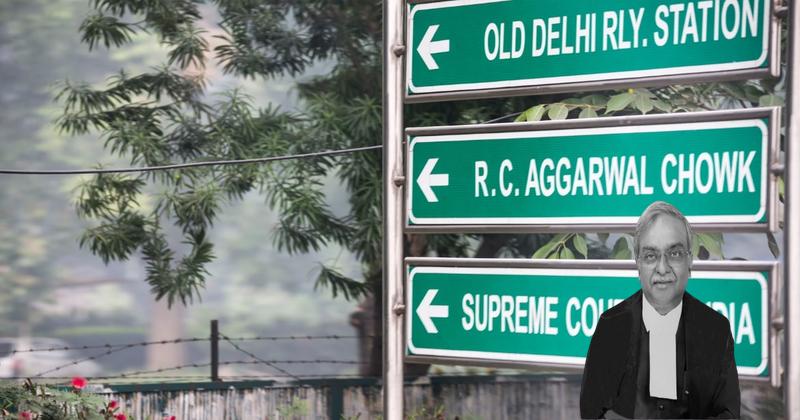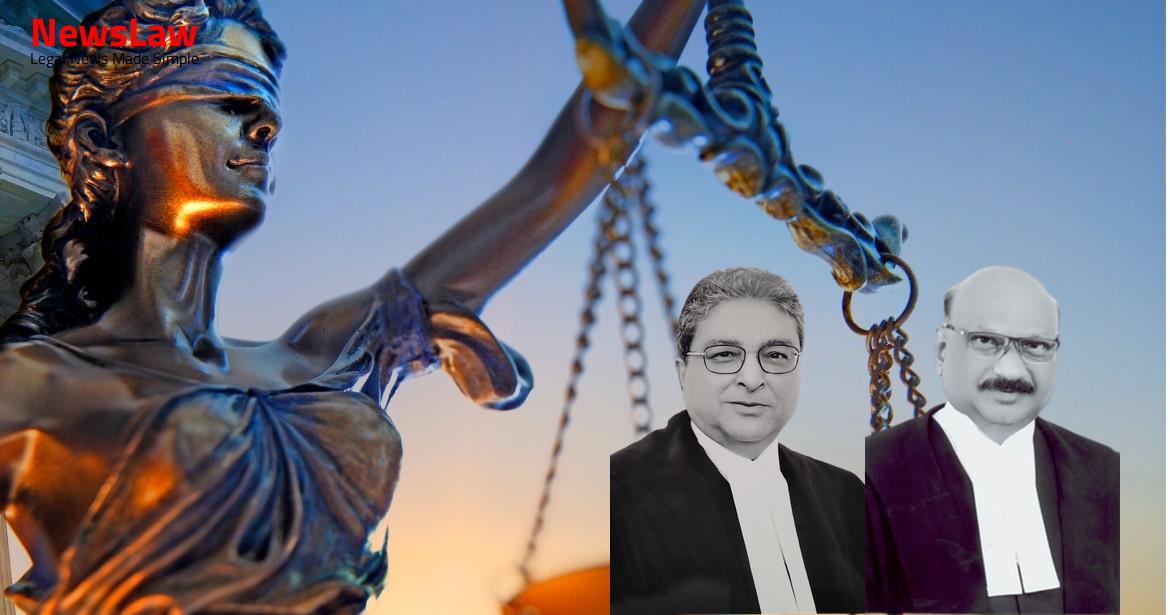In a recent landmark decision, the Supreme Court of India examined the validity of a compromise decree in a land dispute settlement case. The case involves a complex legal battle over ownership and possession of land, with the Court delving into the intricacies of the compromise decree dated 20 August 1984. Stay tuned for further insights into this case and its implications on property rights and legal proceedings.
Facts
- Plaintiffs reached a settlement with defendants and received money.
- Defendants interfered with the land in suit in June 1987 claiming ownership.
- First Appellate Court allowed the appeal and set aside Trial Court’s decree based on plaintiffs’ statements.
- Plaintiffs claimed ownership of half share in the suit land.
- The existence of a written compromise between parties was deemed essential by the Trial Court.
- Defendants submitted a written statement denying the existence of a compromise in earlier proceedings.
- District Judge dismissed the suit based on the statements of parties reaching a settlement and ownership arrangement.
- Sale deed executed by Mansha Ram and others in favor of three sons of Bakshi Ram in 1983.
- High Court ruling in Gurpreet Singh vs Chaturbhuj Gopal was relied upon.
- Civil Suit No 41 of 1988 instituted by Julfi Ram and others against Bakshi Ram and others.
- The first suit was for declaration and permanent injunction against interference by the defendants.
- Ownership and possession of the land was claimed to be with the appellants/defendants.
- The Trial Court decreed the suit in favor of plaintiffs Mansha Ram & others, granting them both declaration and permanent injunction as owners in possession.
- However, the District Judge allowed the appeal, decreeing the suit in favor of plaintiffs without any challenge to the compromise decree.
- The compromise decree operated as res judicata and could not be re-opened in a subsequent suit.
- The High Court dismissed the second appeal, stating that even if the sale deed is valid, it cannot be acted upon as it was executed during the pendency of Civil Appeal No. 64 of 1993.
Also Read: City Manager Selection Dispute: Upholding Rules 2014 Over Executive Order
Issue
- The issue to be determined is the status of the compromise order dated 20 August 1984 in the first round of litigation.
- The court needs to investigate whether the compromise order still holds in the current context of the case.
- This specific point will be crucial in determining the next steps and outcome of the present case.
Also Read: Supreme Court Judgment: Sanjay Maruti Jadhav Vs. Amit Tatoba sawant on Illegal Eviction Case
Analysis
- The order dated 20.08.1984 was not an order of compromise under Order XXIII Rule 3 CPC.
- The argument regarding the applicability and bar under Order XXIII Rule 3A CPC is irrelevant in this case.
- Ownership of the land in suit could only be transferred through a registered sale deed or a declaration by the Competent Civil Court.
- Dismissal of the suit meant that the defendants’ status as tenants continued.
- There was no written compromise deed or verification of any written document between the parties.
- The sale deed dated 22.08.1983 is not hit by Section 52 of the Transfer of Property Act, 1882.
- The sale deed is, however, hit by the doctrine of lis pendens.
- The first Appellate Court and the High Court overlooked the lack of challenge to the sale deed dated 22.08.1983.
- No declaration was granted to the defendants in the suit.
- The defendants were tenants in the initial round of litigation.
- Order XXIII Rule 3 CPC states the requirements for a valid compromise in a suit.
- A valid compromise must be a lawful agreement or compromise in writing and signed by the parties.
- The agreement or compromise must be proved to the satisfaction of the Court.
- In the current case, there is no written document containing the terms of the agreement or compromise.
- In the case of Som Dev v. Rati Ram, the court clarified the requirements of Order XXIII Rule 3 of CPC in relation to compromise decrees.
- After the 1977 amendment of the Code of Civil Procedure, a compromise decree can only be passed if it complies with the requirements of Rule 3 of Order XXIII.
- For a compromise to be recorded and a decree to be passed, the terms of compromise must be reduced to writing and signed by the parties as per Rule 3 of Order XXIII.
- In the case presented, neither the compromise deed was reduced to writing nor recorded by the court, therefore not satisfying the requirements of Rule 3.
- Mere verbal statements of the parties in court about the compromise are not sufficient to meet the requirements of Order XXIII Rule 3 of the CPC.
Also Read: State of Odisha vs. M/s Millan Developer and Builders Pvt. Ltd.: Land Fraud Conspiracy Case
Decision
- Present Civil Appeal allowed.
- Orders passed by High Court and first Appellate Court set aside.
- Compromise decree deemed not valid.
Case Title: AMRO DEVI Vs. JULFI RAM (DECEASED) THR. LRS. (2024 INSC 527)
Case Number: C.A. No.-007791-007791 – 2024



